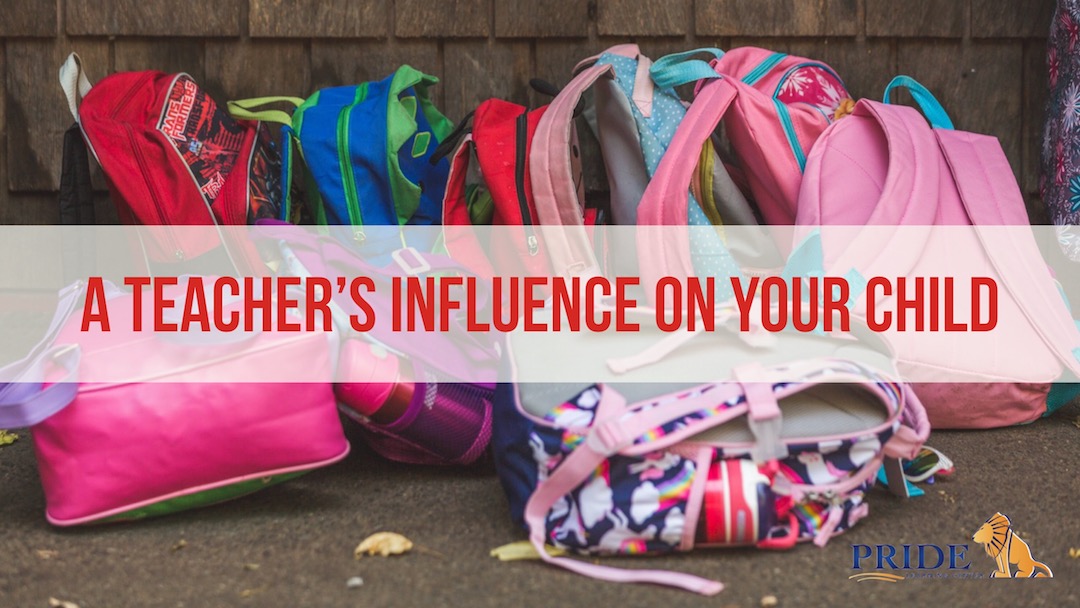
by PRIDE Reading Program Admin | Dec 5, 2017 | A PRIDE Post, Homeschool

Californian schools are doing a great job of providing support to those with learning differences. In the academic year 2015-16, over 700,000 students were given extra support at no extra cost. However, schools can only do so much. It is important to create a home learning environment that builds on the knowledge they gain from schools and learning centers. Here’s how you can improve your child’s education at home, when they’re away from their regular tutor.
Fostering Creativity
All schools will have some creative time, especially for younger students, but there is still a strong focus on conformity over individuality. With an average elementary school class size ranging from 22 in the younger years to 28 in the older years, it is understandable that teachers cannot spend time fully exploring each child’s unique creativity.
This is why it is especially important to work on creative projects at home. While a dyslexic child may not want to write long essays, they may get enjoyment from putting together a comic strip. With exams and tests dominating the schedule, creativity is one of many skills not taught in school and artistic needs could be better served from a home education.
Maintaining Strong Health
Once again, schools are trying to teach about mental and physical wellbeing, but may simply not be equipped to deal with these topics. It can be a safety hazard to take dozens of kids out of school, so they are left confined to a classroom or playing field. As a parent, you can take your child deep into the countryside, where they can learn the importance of movement in an environment that piques their curiosity.
Well specialist schools can help with their reading, writing and comprehension, the home environment is perfect to teach them how to live well. From where they can get the right nutrition to how to build strong relationships, all aspects of mental, physical and emotional health are best taught at home.
Exploring Why Learning is Important
At school, it is taken as a given that kids need to learn the material. But if your child thinks differently, they may spend a lot of time thinking ‘what’s the point?’ It is your job as a parent to explain to them the point. This involves showing the practical uses of their subjects or even why knowledge is important for its own sake. This will help motivate them when they get back behind their desks.
The home and school learning environments should complement and support each other. Teachers lack the resources to give attention to every child on those big questions of creativity, health and the underlying principles of learning. As a parent, you can fill in the gaps by building a strong home education and learning environment.
Thank you so much to our guest blogger, Jocelyn Brown for providing us with this really informative Home Education insight today!
For more posts by Jocelyn, you might enjoy reading the blog post Dogs and Reading: an Alternative Method to Boost Confidence.
To learn more about homeschooling curriculum for children with learning differences and more tips and suggestions, please visit our website here.
Thank you so much for visiting my blog today!

by PRIDE Reading Program Admin | Dec 3, 2017 | A PRIDE Post, Reading Skills
Winter break is finally here! Although we all deserve a vacation from the homework load and daily obligations, we don’t want to completely let our reading and writing skills slip during this winter vacation. As a matter of fact, this is a great time to boost them a little. Here is a very family-friendly list of winter break reading activities you can try at home to keep those reading and writing skills sharp this winter.
Winter Break Reading Activities
- Read for Pleasure. You have heard about a summer reading list – well how about a winter break reading list? Now is the perfect time for your child to catch up on all those books and magazines that they didn’t have time to read during the school year. Reading for pleasure builds vocabulary, expands your child’s mind intellectually and also helps your child become a better writer. So take a trip to your local library and let your kids choose a huge stack of books for some of their winter break reading activities.
- Cook with your kids. Cooking is a great way for the family to spend fun and educational time together. Reading food labels and recipes can help your children improve their reading skills and learn the meanings of unfamiliar words.
- Write thank you letters. Encourage your child to write “thank you” letters for all of the holiday gifts they received from relatives and friends. Sit with your child and write your own notes at the same time. Writing letters is a heavy burden for children, so it might be a good idea to space the work and be supportive.
- Listen to audio books in the car while traveling. Spending time listening to books strengthens listening, concentration and imagination skills in children. It also gives them an opportunity to improve vocabulary and language skills. Take your child’s audio book along on car trips or while you are running errands for some awesome winter break reading activities.
- Go grocery shopping. Let your child carry the shopping list as you shop. They can read off the items you need. Label reading is also a great reading task for children. You can have them look up the ingredients on the labels or ask them to research which breakfast cereal has the least amount of sugar in it.
- Play board games. Here is your opportunity to expand your child’s mind while also having fun and spending time together. Games like Scrabble, Boggle and other word games are great for challenging the minds of kids. Some games require reading for clues or reading directions.
I hope that these winter reading activities work for your family. Enjoy the holidays and thank you for visiting us today!
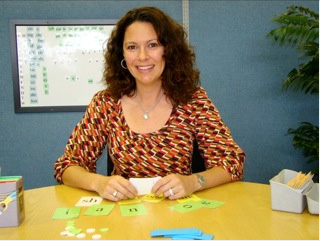
Karina Richland, M.A., is the Executive Director of PRIDE Learning Centers, LLC, an educational company that works with children in special education and focuses on reading, writing and comprehension help. She is also the author of the PRIDE Reading Program, a multisensory Orton-Gillingham reading, writing and comprehension curriculum that is available worldwide for parents, tutors, teachers and homeschoolers of struggling readers.
Karina has an extensive background in working with students of all ages and various learning modalities. She has spent many years researching learning differences and differentiated teaching practices. You can reach her at info@pridelearningcenter.com
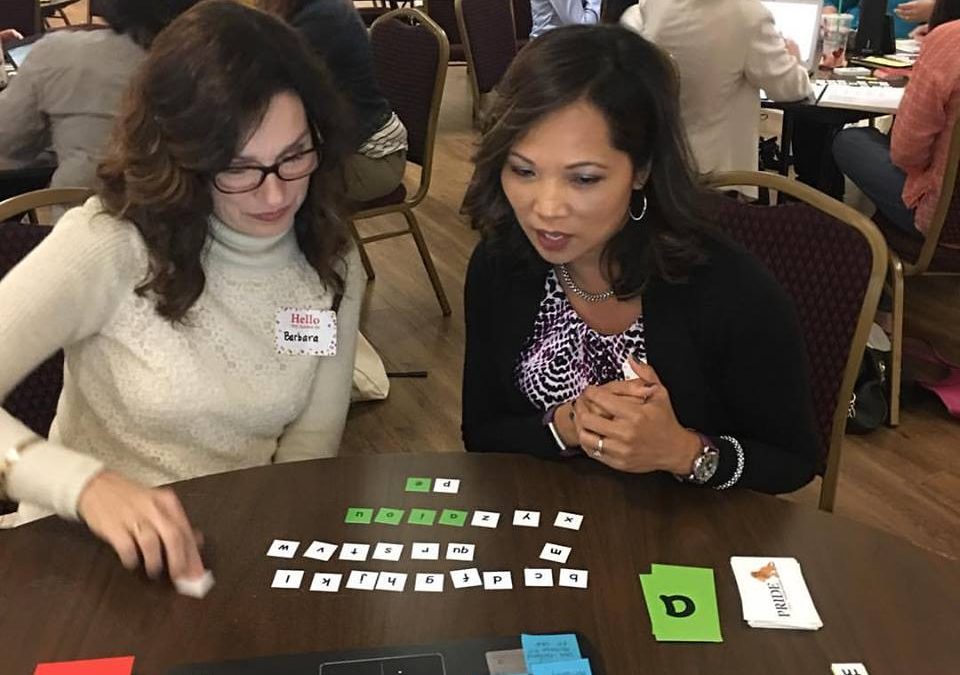
by PRIDE Reading Program Admin | Nov 14, 2017 | Dyslexia
Are you trying to find a dyslexia tutor near you but don’t know where to go or what to do? The internet is filled with tutors out there, but how do you know which one to chose and if they are qualified enough to teach a child with dyslexia. Here is everything you will need to know about finding the right dyslexia tutor for your child.
How can you make sure that you find the right dyslexia tutor for your child?
You can ask speech therapists, educational psychologists and special education advocates. These professionals are usually well connected in their communities and have a network of good people they like to work together with.
Can I get the school to reimburse me for private dyslexia tutor expenses?
Sometimes you can. School districts will reimburse parents for private dyslexia tutor expenses if the district agrees that the school is not providing an appropriate education. Almost always, in my years of working with parents and dyslexia tutors, the parent has to take the school district to a due process hearing to get reimbursed. This means parents have to hire a Special Education Attorney or Advocate. Some parents end up removing their children from public school for part of the day or for a specified time in order to bring their child to a private dyslexia tutor. The school needs to agree with this arrangement.
Can I use a dyslexia tutor in a small group setting?
Sometimes, a dyslexia tutor will work with students in groups. This is an option to consider if you know of other children in the same situation. A group setting will reduce the cost and your child may learn from the other kids as well. The downside to a group session is that your child may not have the benefit of an exclusive one-on-one learning situation with a dyslexia tutor. This can make progress a bit slower as well.
Which program should my dyslexia tutor be using?
Your dyslexia tutor needs to be using an Orton-Gillingham reading program. This program needs to be structured, systematic, cumulative and extremely repetitive. It also needs to be multisensory. Most Orton-Gillingham programs will use a very specific scope and sequence. It is crucial that the dyslexia tutor follow this scope and sequence precisely and not skip around. If you have an amazing tutor that you love that is not trained in Orton-Gillingham, then you can provide a program for them to follow and use with your child. You can also homeschool or tutor your own child with an Orton-Gillingham tutoring program. Some dyslexia tutoring programs that I recommend for tutors or homeschool parents to use are:
After selecting a dyslexia tutor, make sure that you receive regular progress assessments along each step of the way. Ask the dyslexia tutor to provide you with tutoring session plans on a regular basis so you can follow along with your child through their scope and sequence. Good Luck finding a dyslexia tutor and if you need more assistance – feel free to contact me personally.

Karina Richland, M.A., is the Executive Director of PRIDE Learning Centers, LLC, an educational company that works with children in special education and focuses on reading, writing and comprehension help. She is also the author of the PRIDE Reading Program, a multisensory Orton-Gillingham reading, writing and comprehension curriculum that is available worldwide for parents, tutors, teachers and homeschoolers of struggling readers. You can reach her at info@pridelearningcenter.com or visit the website at PRIDE Learning Center.
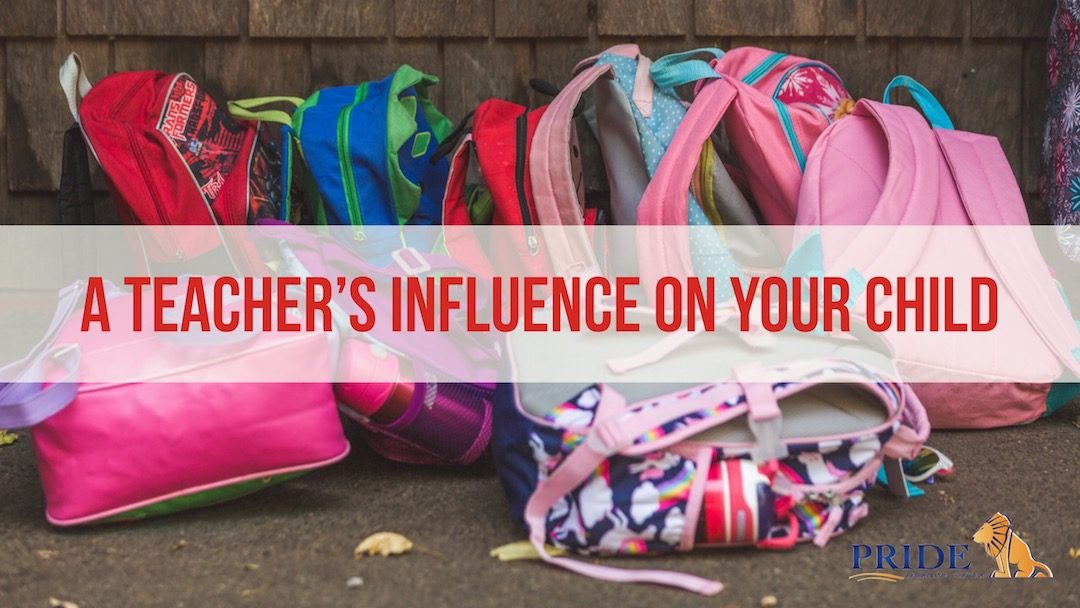
by PRIDE Reading Program Admin | Nov 8, 2017 | A PRIDE Post, Student Motivation
Education is an important tool that can shape an individual and allow creativity, opportunity and growth. As a teacher, it is necessary to motivate students and help them recognize their strengths and weaknesses. Educators are important role models for students and have a big impact on helping shape, create, support and establish students’ strengths, goals and knowledge. Therefore, it is essential to be aware of the effective qualities, skills and characteristics that one brings into a learning environment and how teacher influence plays a role.
What Makes an Effective Teacher?
According to research teacher preparation and knowledge of teaching and learning, experience, subject matter knowledge and certification all establish teacher effectiveness. Teacher preparation is important to their effectiveness in a classroom. Good quality teacher preparation is important to student academic achievement. Prepared graduates have a higher likelihood of remaining teachers and providing quality service to their students and to the schools they work in which creates a positive teacher influence overall.
What is Teacher-Efficacy?
Teacher-efficacy is a teacher’s confidence in their ability to help students to learn. Research shows that teacher-efficacy has an effect on his or her students’ academic performance. It is important that teachers believe in themselves and in their abilities as a role model and educator, because it plays an important role on their student’s self-perception and performance. It also helps a teacher influence and communicate more effectively with students as well as with the overall perception of their student’s strengths and weaknesses. Teachers with self-efficacy have a positive impact on their students’ academic performance. It is something that all teachers need to build, because it is believed to have an important role on students’ academic performance.
“Do teachers’ expectations of his or her students have an impact on students’ academic performance?”
Student learning can be positively impacted by the encouragement of teachers to their students. A teacher’s influence, ideas and expectations of his or her students’ capabilities have an effect on student academic performance and achievements. If teachers believe in their students, their students begin to believe in themselves. Students take into effect the beliefs their teachers have on them and accept it as part of who they are and their abilities. When students are viewed in a negative way by their teachers such as, being lazy, unmotivated and having no abilities, they take on those beliefs about themselves. Many teachers may not be aware of their actions towards particular students in the classroom but their students become aware of them. According to research finding, teachers’ beliefs translate into differential behavior toward their students. For example, teachers who see particular students as highly motivated and highly capable would often make eye contact, smile and lean toward them, and praise and call on them more frequently.
“Does teacher motivation affect student performance?”
Motivation in infants and young children is very high. Infants and young children have a big interest in their surroundings and environment. Unfortunately, as young children get older, they become less interested and enthusiastic about their surrounding and environment. Learning about their environment seems like an unwanted task and desire.
Student motivation is the desire and interest that a student has to be involved in their learning environment. There are reasons that affect student motivation. For example, an intrinsically motivated student looks at the learning activity as an enjoyable process and gets great satisfaction through the process of learning. A student who is extrinsically motivated looks at the learning activity as something they have to do so that they can get a reward or not be punished.
It is also believed that motivation to learn is determined or affected by modeled behavior and communication of parents and teachers. Children develop an idea about learning in their home setting. Children are given a particular message from their homes based on their parents’ encouragement of exploring their world compared to children who are given the encouragement to explore the world around them. Therefore, children without an encouraging and supportive home setting are less likely to deal with and handle failure, because of their feelings about no self-worth or competence.
Older children have a harder time accepting failure and seeing the positive side of trying to accomplish a goal, whereas, younger children see failure as a positive step to finishing or reaching a goal. Teachers’ influence and expectations of students also play a big role in motivation of student. The rules and goals also play an important role on the thoughts and beliefs of the students. It is important for teachers to view themselves as being able to stimulate student motivation to learn.
Tasks given to students can help increase motivation by being challenging and achievable, and showing students that the skills involved in a task can be used in the real world. Verbally providing the reasons for the tasks to students is also helpful. According to research there is a process called Attribution Retraining that includes modeling, socialization and practice exercises and is sometimes used with discouraged students. Attribution retraining provides students with focus on a task rather than the fear of failure.
Karen Oquendo, M.S. is the Learning Specialist at St. James Episcopal School in Los Angeles. Karen is a Credentialed Special Education Teacher and Reading Specialist. Prior to working at St. James, Karen worked as a Reading Specialist at PRIDE Learning Centers and also as a Special Education Therapist for New York City Department of Education. You can visit the PRIDE Learning Center website at www.pridelearningcenter.com.

by PRIDE Reading Program Admin | Oct 23, 2017 | A PRIDE Post, Dyslexia
I have watched many families throughout my career as an Orton-Gillingham tutor, lose valuable time and money when choosing the wrong person or the wrong program to tutor their dyslexic child. I know that these parents had great intentions but simply did not take the time or do the research necessary to become informed. Several essentials make up a successful plan for your child to get the most out of his or her dyslexia tutor.
Use Orton-Gillingham
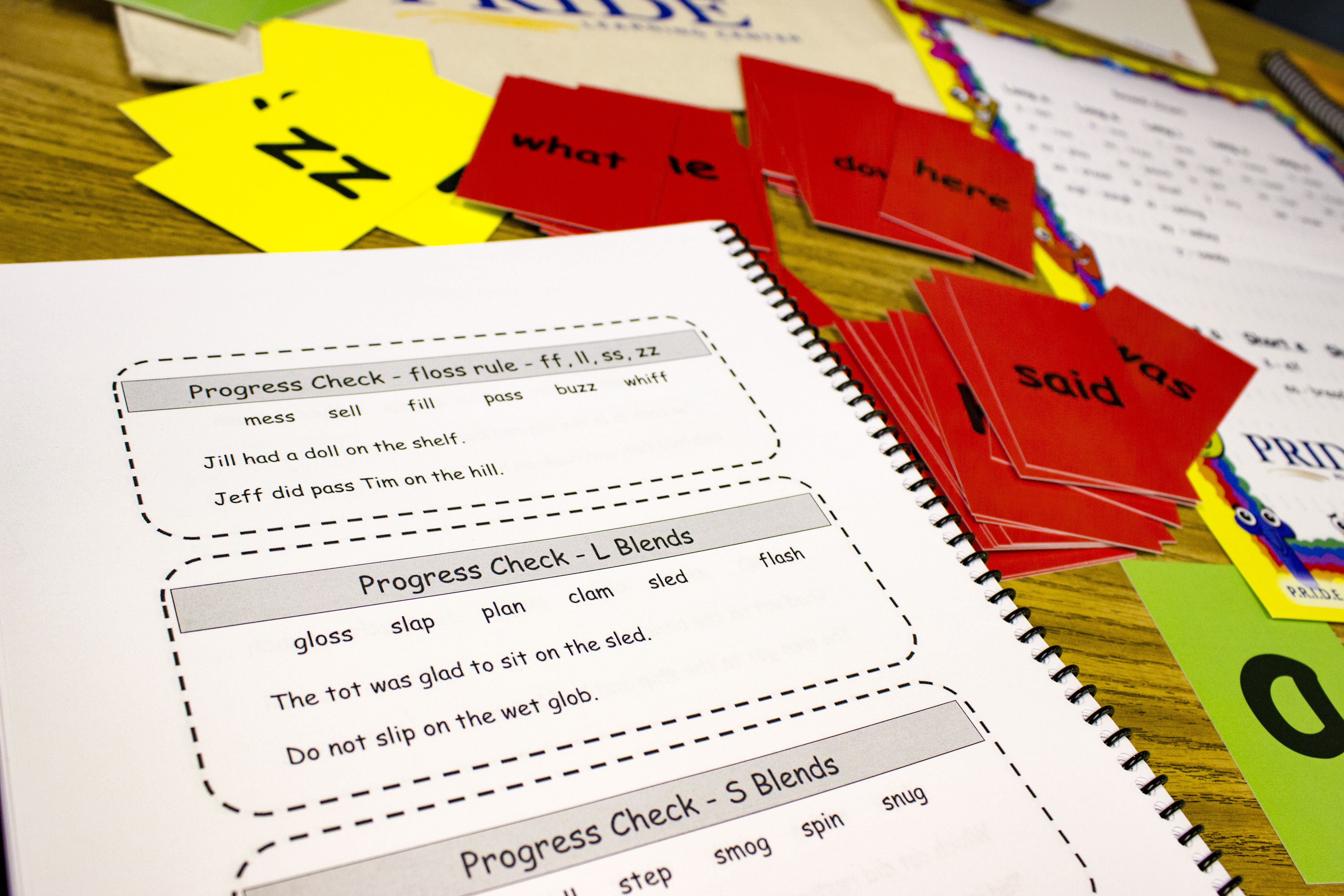
The Orton-Gillingham approach is the “grandmother” dyslexia tutoring program from which many others are derived. It was developed in the 1930s and 1940s by neurologist Samuel Orton and linguists June Orton and Anna Gillingham. Together they developed this amazing way of teaching the structure of letter-sound correspondences, using a multi-sensory method. A dyslexia tutor that is trained in Orton-Gillingham will be able to tutor your child in reading, writing, spelling and comprehension strategies correctly. If you are unable to find a dyslexia tutor trained in Orton-Gillingham, you can always hire a tutor that you like and hand them an Orton-Gillingham tutoring program that they can use with your child.
Orton-Gillingham tutoring programs:
The PRIDE Reading Program is a multisensory, Orton-Gillingham curriculum for tutoring reading, writing, spelling and comprehension. It is taught in a step-by-step progression using an easy to follow On-Line Teaching Guide that is heavily scripted out. Because it is so easy to follow the script and it also comes with online demonstrations on how to teach each step, tutors with little or no experience with Orton-Gillingham can implement it quite easily.
The Barton Reading Program is a teaching method based on the Orton-Gillingham approach. It comes with videos that explain how to teach each lesson. It is easy to learn this system and easy to teach it.
The All About Learning has an All About Reading Program and an All About Spelling Program. These programs offer intense reading and spelling lessons utilizing the Orton-Gillingham methodology. They are both highly interactive multi-sensory programs that are scripted and illustrated and easy to follow.
Use 1:1

Dyslexia tutoring must be delivered 1:1 for your child to progress the most. Keep in mind that the dyslexic student is behind his or her classmates and must make more progress than they do or catch-up will never happen. If your child is far behind, he or she must make a huge leap to catch up. Those that never make that leap might very well stay behind forever. In a 1:1 lesson, the dyslexia tutor will customize the program to fit your child. The tutor will slow down, repeat, speed up or change the pace as needed. In a group setting, the tutor has to shoot for the middle of the group, so if your child is slower than the rest they will be forced to move too quickly and the information will not “stick.” If your child needs to move faster than the group but is forced to slow down to stay together, your child will be bored to death. Being bored will result in a lack of motivation and also ignites difficult behavior. Some really great 1:1 dyslexia tutoring centers are:
Lindamood Bell is a learning approach that can help students who struggle with reading and other learning issues. It offers 1:1 instruction at private learning centers throughout the world.
PRIDE Learning Center employs the Orton-Gillingham, multisensory approach to reading, writing, spelling and comprehension. PRIDE will send a trained dyslexia tutor to your home, work, school or library. They also run many Orton-Gillingham summer camp programs throughout the United States. Their dyslexia tutors are background checked, have strong backgrounds in special education and are warm, nurturing instructors trained to implement the PRIDE Reading Program.
Your child with dyslexia will face many challenges in school at various times. By being a loving and pro-active parent and getting your child into the right program with the right kind of a dyslexia tutor will really benefit your child’s self-esteem, love of learning and academic success.

Karina Richland, M.A., developed the PRIDE Reading Program, an Orton-Gillingham program for struggling readers, based on her extensive experience working with children with learning differences over the past 30 years. She has been a teacher, educational consultant and the Executive Director of PRIDE Learning Centers in Southern California. Please feel free to email her with any questions at info@pridelearningcenter.com.







